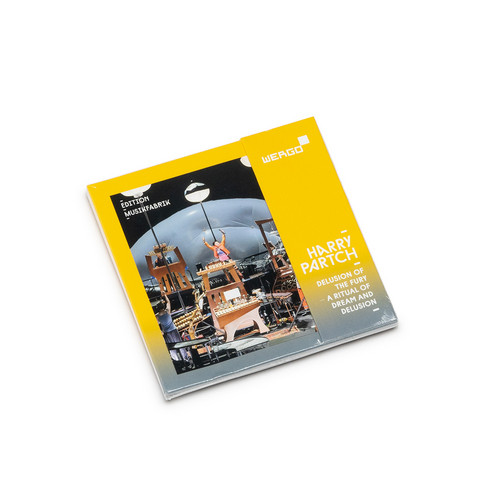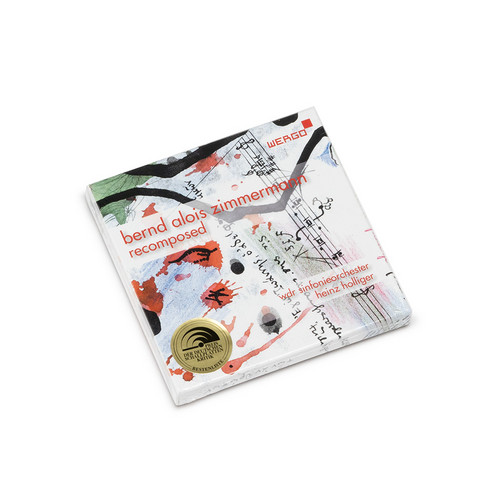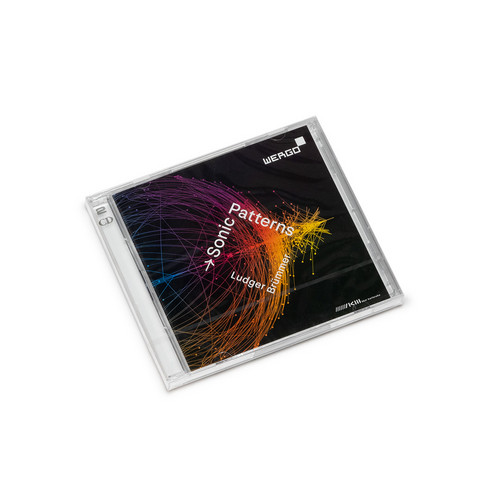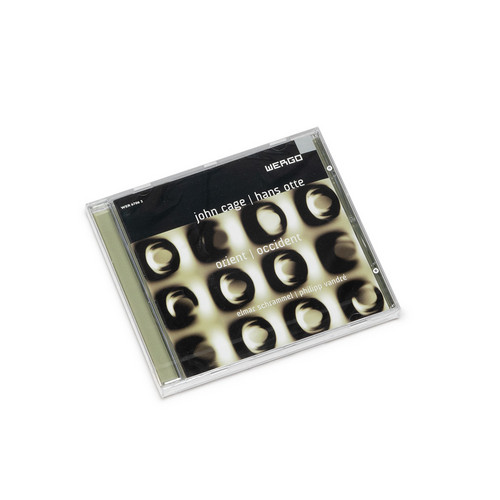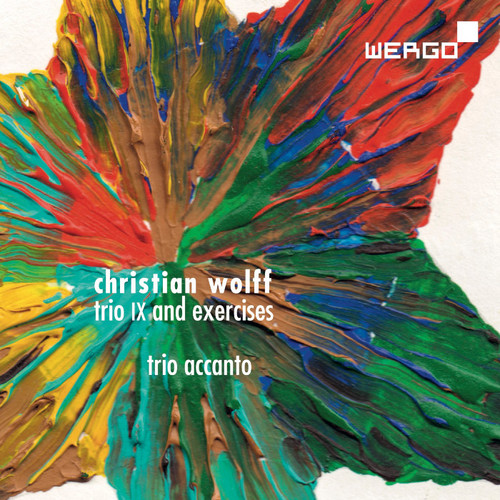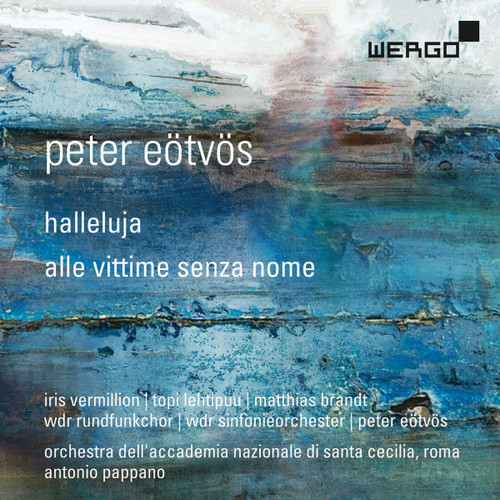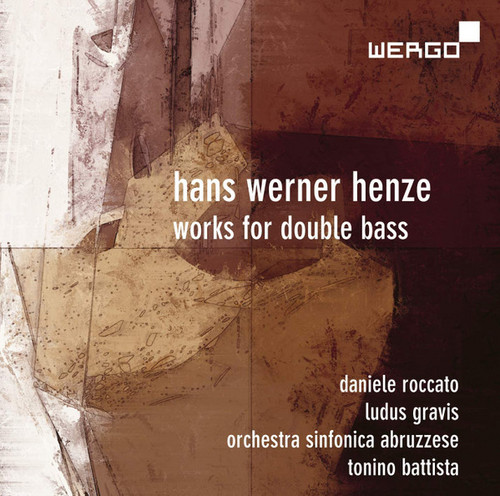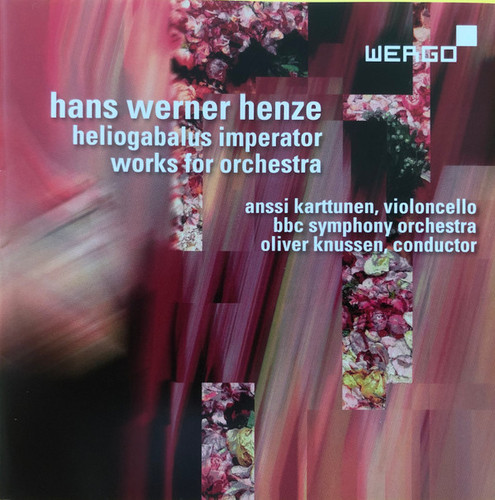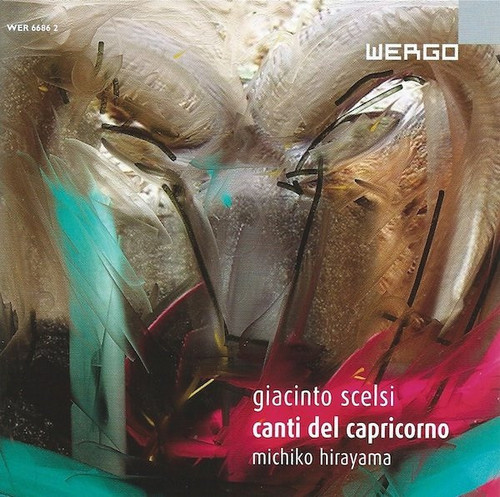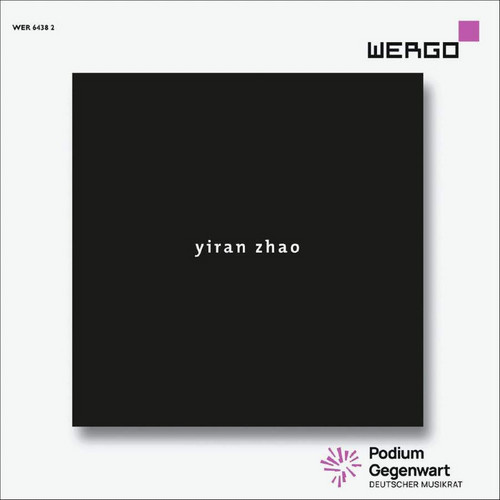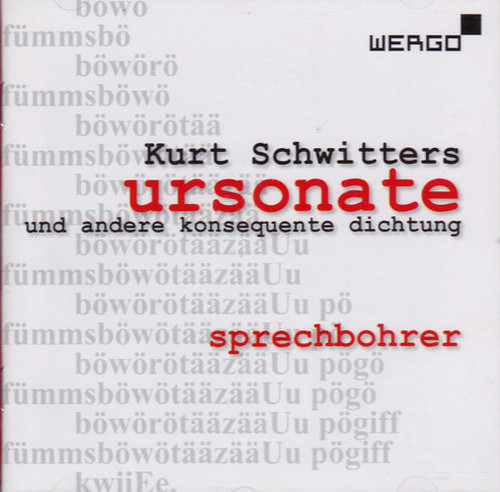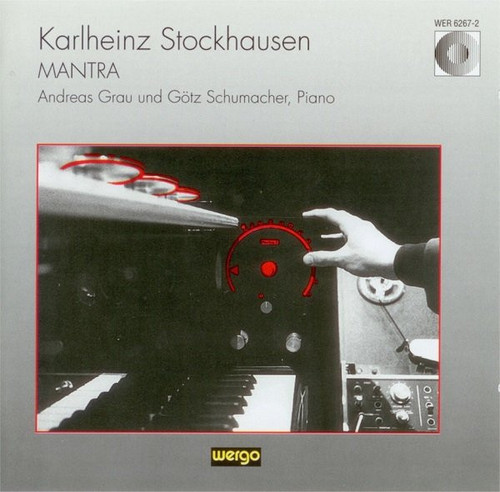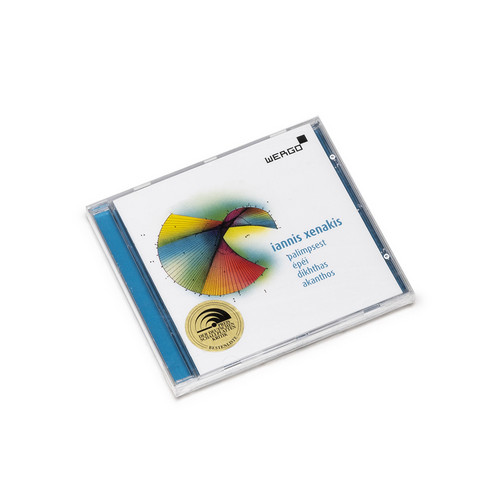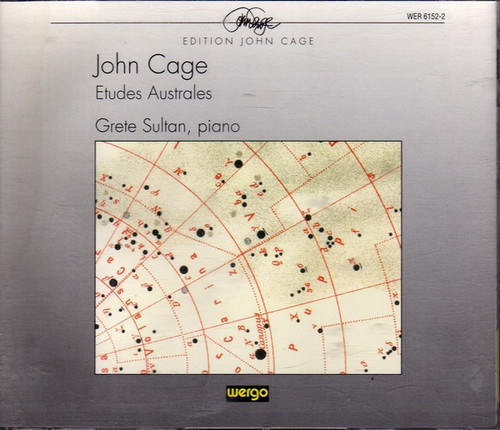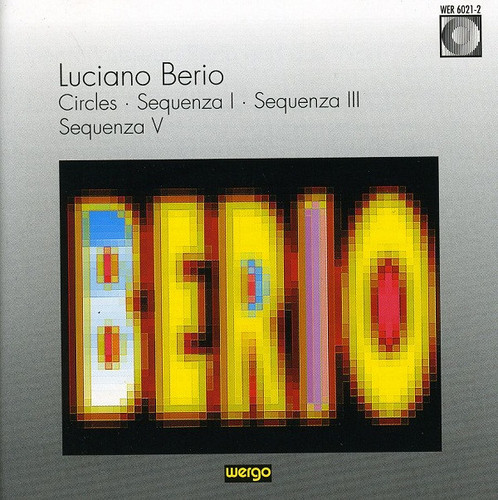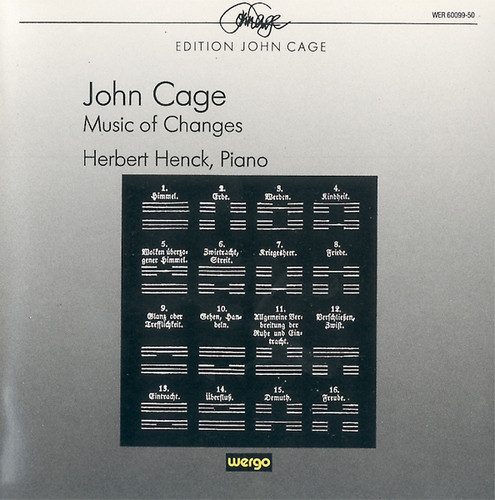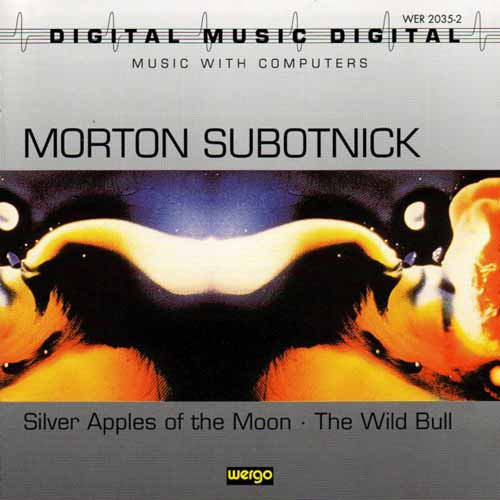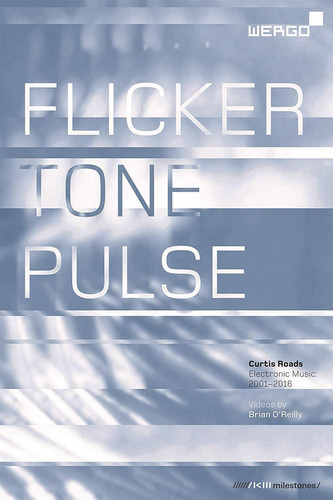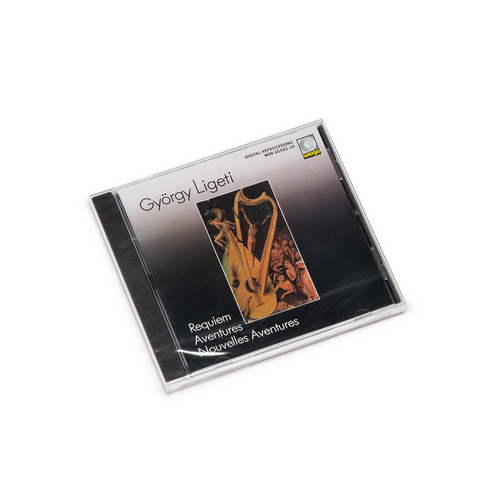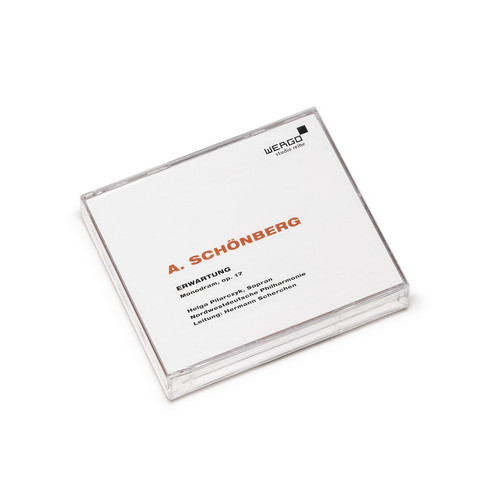★Wergo
Delusion Of The Fury
“It was only with Partch that a music began to take shape that could do equal justice to the physical desire for rhythmic pulse and a curiosity for new, unheard sounds; a music that enthralls us despite, or rather, precisely because of its unfamiliarity. A music for which we have no category, and which has no location, and yet in a strange way is grounded.” – Heiner Goebbels
The American composer Harry Partch (1901-1974) is considered a pioneer of the Just Intonation movement and was far ahead o…
Recomposed
*2024 stock* Bernd Alois Zimmermann (1918–1970) was one of the most distinctive composers in the musical avant-garde after the Second World War. While Karlheinz Stockhausen served as a kind of ‘generator’ in Cologne during the 1950s and 60s, inventing completely new sounds and techniques, Zimmermann was in many ways his opposite, a ‘transformer’ who redefined previously existing material by placing it in new contexts and collage-like structures, anticipating the ideas of the Postmodernists.
Zimm…
-> Sonic Patterns
For decades, Ludger Brümmer has represented a unique, courageous, and often instantly recognisable voice in electronic, algorithmic, and computer music. He develops structures that lead to aesthetic experiences normally found, if at all, only in the most expressive of instrumental works.
Ludger Brümmer’s music is dominated by processes. All processes are on a trajectory towards a climax or evolve from a climax to a minimum. Ultimately, a complete lack of orientation is to be achieved in the clim…
Orient | Occident
*2024 stock* Live recording of the piano recital for the eightieth birthday of composer Hans Otte that Philipp Vandré and Elmar Schrammel presented at the Akademie Schloss Solitude in Stuttgart. A selection of John Cage's "Sonatas and Interludes" for prepared piano was interwoven with selections from Hans Otte's piano cycles "Das Buch der Klänge" (The book of sounds) and "Stundenbuch" (Book of hours). This concert experiment, conceived by Ingo Ahmels, paid quiet homage to the "beautiful piano so…
Trio IX / Exercises
The American composer Christian Wolff (b. 1934) is the last living representative of the New York School (Rauschenberg, Rothko, etc.). Wolff was not even an adult when he studied with Grete Sultan and John Cage. Wolff’s music was much more politically motivated than that of Feldman and Cage, which is evident on this new Wergo album by Trio Accanto. The album features first recordings made in close collaboration with Wolff in the studios of Deutschlandfunk Cologne/Germany. Wolff's great “Trio IX …
Halleluja / Alle Vittime Senza Nome
*2022 stock* 'Halleluja, Peter Eötvös’s “stuttering oratorio”, with a text by the novelist Péter Esterházy, was first performed in 2016. It’s built around the historical figure of Notker Balbulus, Notker the Stammerer, a ninth-century Benedictine monk who was a chronicler and composer. But, Eötvös insists, “It is not so much a portrait of Notker as of the times in which we live … At first the choir represents a society that says ‘hallelujah’ to everything: they have to be satisfied with everythi…
Works For Double Bass
*2022 stock* 'Hans Werner Henze was, during his lifetime, probably the most-performed composer of western modern music, and his advanced yet sensuously traditional music remains an important presence on stages around the world today. Henze was deeply attached to Italy, where he spent a large part of his life. The roots of this album go back to a personal meeting between Henze and the Italian double bass virtuoso Daniele Roccato when Roccato was attempting to obtain Henze’s blessing for a theater…
Heliogabalus Imperator / Works For Orchestra
*2022 stock* The relationship between Hans Werner Henze and Oliver Knussen was one of great mutual respect. The German composer admired the British conductor and composer for electrifying performances of Henze’s own and other composers’ works. Knussen was an untiring and enthusiastic champion of his friend Henze’s music. The recordings collected here display Knussen’s deep understanding of Henze’s music. Knussen conducts the BBC Symphony Orchestra in sensitive and meticulous performances of comp…
Canti Del Capricorno
*2022 stock* Michiko Hirayama inspired Giacinto Scelsi to write his twenty-part cycle "Canti del Capricorno" between 1962 and 1972. To this day the Japanese singer (b. 1923) is a unique performer of this spiritual yet energy-filled work for solo voice, with instrumental accompaniment for certain songs: Scelsi’s notes in his own hand in the score; that is her treasure, when she comes to Ulm in May 2006 to give a concert in the series neue musik im stadthaus. Michiko Hirayama is a vocal power stat…
s/t
Yiran Zhao makes use not only of musical elements but also of objects, bodies, movements and light-sources as compositional material. Many of her pieces inhabit the various boundary states between instrumental music, performance, sound-installation, and video-art. Leonie Reineke describes the composer in the CD-booklet as a “prudent researcher“, who encounters the sonic cosmos of her environment with great earnestness, and comes microscopically close to things.
In the composition “Piep“ she focu…
Ursonate Und Andere Konsequente Dichtung
*2022 stock* Kurt Schwitters’ “Sonate in Urlauten” [Sonata in Primal Sounds] is the prototypical work at the border between speech and music. The concise title of the work alone forges a suggestive link between language material and the musical form of the sonata; the "Ursonate" almost proverbially stands for sound poetry. For Schwitters, who was actively involved in promoting his sound-poetical opus magnum, even as his own interpreter, it was difficult to imagine that his work could survive wit…
Mantra
*2022 stock* 'Composed in 1970, Mantra, for two pianos and ring modulation, was one of the decisive turning points in Karlheinz Stockhausen’s career. The 70-minute piece not only signalled a break with the text-based intuitive works, relying heavily on improvisation, that had come to dominate his output towards the end of the previous decade and a return to fully notated scores, but also introduced the idea of melodic formulae, the “mantra” of the title, which Stockhausen would eventually develo…
Palimpsest | Épéi | Dikhthas | Akanthos
*2022 stock* 'This collection of ensemble works, six altogether, ranges across the last two decades of Iannis Xenakis's life. It includes the last two pieces he composed, Zythos, for trombone and six marimbas, and O-Mega, for percussion and ensemble, both written in 1997, four years before his death. They are striking, small-scale examples of the bareness and drastic compression of his late style, but the finest music here is a bit earlier. In Échange, from 1989, a bass clarinet painstakingly un…
Etudes Australes
*2022 stock* 'Etudes Australes was composed specifically for Grete Sultan, so this album is among the definitive recordings. As an indeterminate piece for solo piano (okay, well, a "duet for two hands"), this sounds very similar to Music of Changes, Winter Music, etc. Here, though, Cage generates indeterminacy by turning once again to using star charts as tools of composition, as he did previously in the wonderful Atlas Eclipticalis.
In a way, I find the piano to be more suited to star charts th…
Circles · Sequenza I · Sequenza III · Sequenza V
Wergo presents Luciano Berio's compositions Circles · Sequenza I · Sequenza III · Sequenza V.
Music Of Changes
*2022 stock* It's over 70 years since John Cage wrote his pivotal Music of Changes, and it's beginning to show its age. It feels very much of its time, with its uncompromising adherence to the 64 hexagrams of I-Ching, the Chinese book of changes, determining the direction of the piece and its use of sudden, percussive attacks on the strings or the body of the instrument. But for all that there is no denying the extreme stamina and concentration required of the performer, and here Herbert Henck e…
Silver Apples of the Moon / The Wild Bull
Silver Apples of the Moon' is without a doubt the best known work from influential composer and electronic music pioneer Morton Subotnick. It was originally commissioned by Nonesuch records back in 1967, when electronic music was more of a series of ideas than a recognised art form, and since then it has achieved well deserved classic status, influencing so much that would come after it is impossible to conceive. Subotnick's instrument of choice was the Buchla modular synthesizer, a gigantic pat…
Flicker Tone Pulse (Electronic Music 2001-2016)
A prolific composer, performer, and author, Curtis Roads says he “pursues research in the interdisciplinary territory spanning music and technology.” He was Editor and Associate Editor of Computer Music Journal (The MIT Press) from 1978 to 2000, co-founded the International Computer Music Association in 1979, and was a pioneer in the development of granular synthesis. Roads developed the Creatophone, a system for spatial projection of sound in concert, as well as the Creatovox, an expressive new…
Requiem / Aventures / Nouvelles Aventures
*2022 stock* György Ligeti's "Requiem" for soprano, mezzo-soprano, two mixed choirs and orchestra is one of his most impressive compositions - especially, when directed by Michael Gielen - and at the same time "the" requiem of the 20th century: Sound which is chromatically layered moves gradually from the lower registers to the higher, thus changing from mourning sounds into the promise of the eternal light. In the Kyrie the polyphonic net which was previously static begins to move gently. It wa…
Erwartung - Monodram, Op. 17
With the legendary “Studio Reihe Neuer Musik” series, Wergo created a trademark of advanced contemporary music in the Sixties of the past century already. On the occasion of its 50th anniversary, the label now releases these highlights of 20th-century music history in an excellent sound quality on CD for the first time.The "Studio Reihe”now continues with a work by Arnold Schönberg: The premiere of Schoenberg's first stage work "Erwartung (Monodram)" [Expectation (Monodrama)] Op. 17, composed i…
